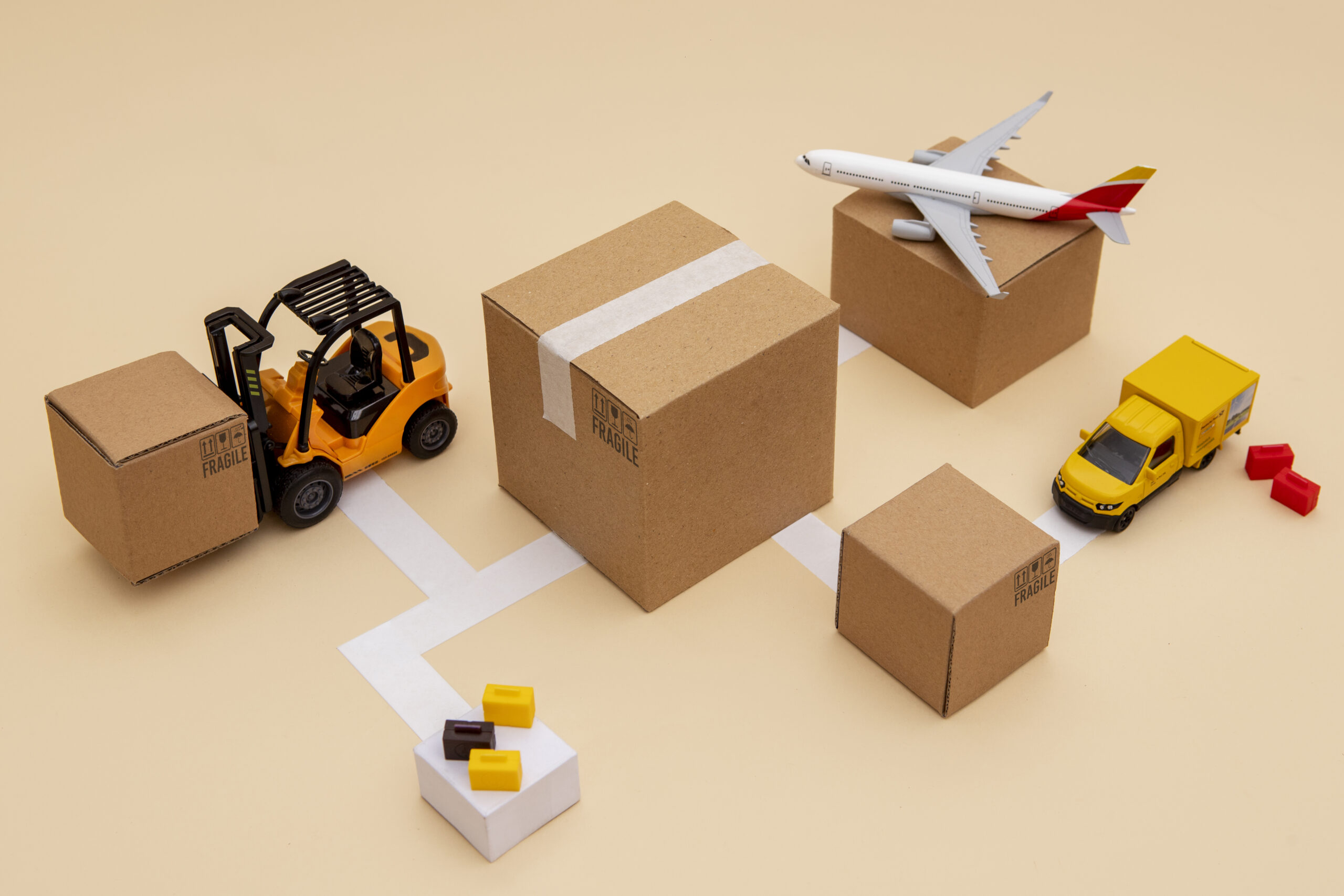In today’s fiercely competitive eCommerce landscape, where speed, efficiency, and customer satisfaction reign supreme, shipping costs can often become a significant pain point for business owners. According to a recent survey conducted by Shippo, 41% of 1000 eCommerce retailers cited shipping costs as the biggest challenge in the online business. With customers increasingly expecting fast and cost-effective deliveries, business owners are always looking for strategies that can help them reduce eCommerce shipping costs while maintaining a high level of service. Fortunately, there’s a game-changing solution on the horizon: partnering with an eCommerce fulfillment provider or Third-Party Logistics (3PL) company.
In this blog, we’ll explore how partnering with third-party logistics companies or eCommerce fulfillment providers will not only help reduce shipping costs but also streamline your entire logistics operation, allowing you to focus on what truly matters—growing your e-commerce business.
How are eCommerce Shipping Costs determined?

Shipping costs are a significant concern for eCommerce businesses. According to the 2021 State of Shipping Report, shipping expenses typically account for 10-20% of a retailer’s total expenses. That said, it is highly imperative for you to understand which factors influence the shipping costs.
Here’s a quick overview of factors that contribute to shipping costs:
-
-
Shipping Distance:
One of the major factors contributing the highest to eCommerce shipping costs is the distance between the origin and destination. Longer distances typically result in higher shipping charges due to increased fuel, labor, and transportation expenses.
-
-
-
Shipping Method:
The chosen shipping method affects costs. Standard options include ground shipping, air freight, ocean freight, and expedited services. Faster methods like air shipping are generally more expensive than slower ones like ground shipping.
-
-
-
Package Size and Weight:
Another significant factor that adds to shipping cost is the package size and weight. Heavier and bulkier packages are more expensive to ship because they require more space and may exceed the weight limits set by carriers. Carriers often use dimensional weight pricing, where they charge based on package size in addition to weight.
-
-
-
Package Density:
Talking about density there are 18 potential classifications for Less-Than-Truckload (LTL) shipments, with ratings ranging from a minimum of 50 (referring to easily manageable dense freight) to a maximum of 500 (indicating low density and high value). The greater the classification number and lower the density, the higher the cost for a shipment.
-
-
-
Shipping Class:
Products can also be categorized into specific shipping classes based on fragility, perishability, and hazardous materials. Shipping dangerous or fragile items often leads to additional costs due to special handling requirements.
-
-
-
Shipping Destination:
Shipping to remote or rural areas can be more expensive than delivering to urban or well-serviced locations. Remote areas may require additional transportation, increasing the overall cost. Also, less trafficked areas tend to be more costly as they are less profitable for the carrier and they might have to partner with another carrier service.
-
-
-
Delivery Time:
Fast shipping has become the core of good customer service for eCommerce businesses. Said that delivery time is another crucial factor in determining shipping costs. Expedited or express services, which offer quicker delivery times, often come at a premium price compared to standard delivery options.
-
-
-
Shipping Insurance:
Adding insurance to protect the value of the shipped items also increases the cost of shipping. The more valuable the items, the higher the insurance cost.
-
-
-
Customs and Duties:
For international shipments, customs fees, import duties, and taxes can significantly impact shipping costs. These charges depend on the nature of the goods, their declared value, and the destination country’s regulations.
-
-
-
Packaging Materials
: The type and quality of packaging materials used also affect the shipping costs. Sturdy and protective packaging may be more expensive but can reduce the risk of damage during transit.
-
Read More: Complete Guide On ECommerce Fulfillment
Benefits of 3PL or eCommerce Fulfillment Providers: How to reduce shipping costs by partnering with them?

A survey conducted by Armstrong & Associates found that partnering with a 3PL can reduce logistics costs by 15% on average.
Let’s delve into the benefits of 3PL and how partnering with them or eCommerce fulfillment providers helps you reduce shipping costs:
-
Bulk Shipping Discounts:
Most direct-to-consumer eCommerce brands are not able to negotiate lower shipping rates due to their volume of orders and shipments. In contrast, eCommerce fulfillment providers ship orders on behalf of many brands and businesses and therefore have a higher buying power when negotiating shipping rates. A report by Inbound Logistics revealed that 3PLs can secure shipping rates up to 30% lower than what an individual retailer can negotiate.
As they manage a high volume of orders and shipments, 3PLs tend to establish relationships with shipping carriers. This allows them to negotiate better shipping rates due to the sheer volume of shipments they handle. Ultimately partnering with them helps DTC eCommerce brands take advantage of lower shipping rates. -
Accurate Packaging Strategies:
The expertise of 3PLs and eCommerce fulfillment providers in optimizing packaging leads to efficiency and cost-effectiveness. Reliable eCommerce fulfillment partners like ShipTop use advanced in-house software and automation to determine the most suitable packaging size for each item, minimizing wasted space and ensuring that packages are not oversized. This optimization reduces dimensional weight charges and lowers shipping costs helping you maximize your profits.
-
Inventory Management:
According to a study by Supply Chain Digital, 75% of businesses reported overall logistics cost reductions after partnering with a 3PL. Efficient inventory management ensures that you have the right products in the right locations. This can reduce the need for expedited shipping, which is often more expensive.
-
Third-Party Insurance:
Many 3PLs and fulfillment centers offer insurance options for your shipments. By insuring your packages through them, you can often get better rates than purchasing insurance separately from carriers. This can protect you from unexpected costs due to lost or damaged shipments without significantly increasing your shipping charges.
-
Seamless Returns Management:
Out of the many benefits of 3PL, handling returns efficiently ultimately results in reducing the overall cost of managing returns. This includes restocking returned items more quickly and efficiently, potentially avoiding the need for extra shipping charges associated with returns. However, all you need to do is choose the right eCommerce fulfillment provider.
-
Optimized Shipping Methods:
Fulfillment providers ace the expertise to select the most cost-effective shipping methods based on the destination, package size, and delivery time requirements. They can consolidate shipments when possible, which can lead to lower shipping costs.
-
Reduced Shipping Errors:
Fulfillment providers are experts in picking, packing, and shipping. They can significantly reduce shipping errors, which can result in costly returns and reshipments.
Partner With ShipTop To Reduce Your Shipping Costs and Earn More Profits
Shipping costs are one of the major concerns for online retailers that eat profit margins and eventually impact competitiveness. That said, one of the major benefits of working with a 3PL is cost savings and operational efficiencies that help you stay competitive in the ever-expanding world of eCommerce. However, you must choose a reliable 3PL or eCommerce fulfillment provider that can help.
By entrusting your eCommerce fulfillment needs to ShipTop, you gain access to a wealth of expertise, efficient strategies, and cost-saving measures. Whether it’s optimizing packaging, negotiating with carriers for better rates, or leveraging our extensive network of fulfillment centers, we are committed to helping you reduce shipping costs while delivering exceptional service to your customers.
So, why continue to grapple with shipping cost challenges when you can partner with ShipTop to streamline your logistics, reduce expenses, and ultimately earn more profits? The choice is clear, and the benefits are substantial—make the smart move today and partner with ShipTop to maximize your business profits.




